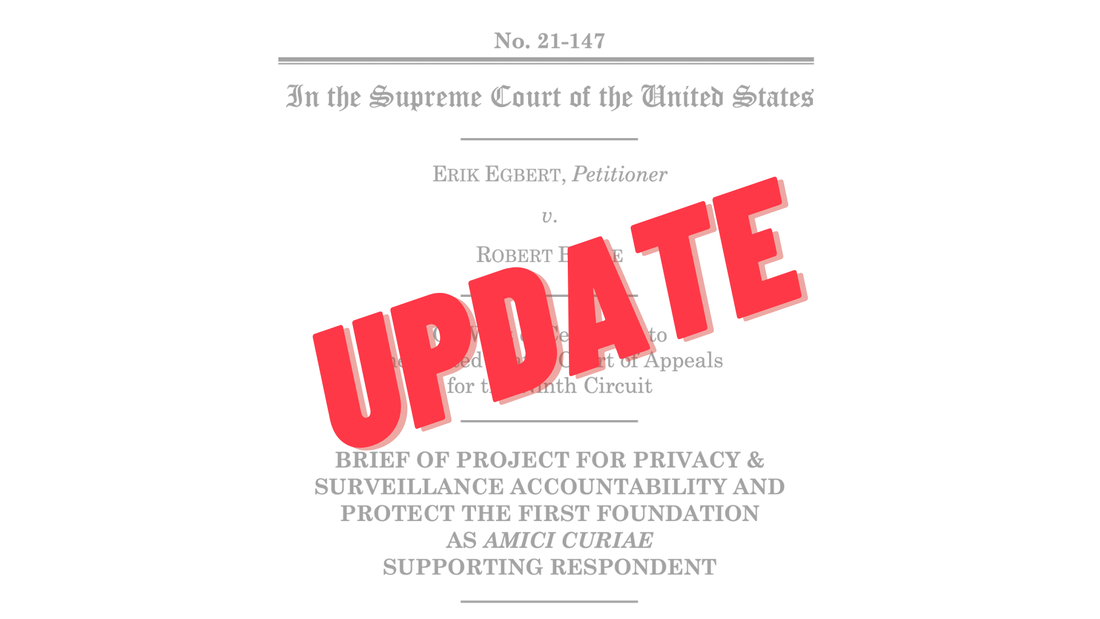|
In a 6-3 decision today, the U.S. Supreme Court granted U.S. Customs and Border Patrol agents who violate the Fourth Amendment and other provisions of the U.S. Constitution almost total immunity from lawsuits. This ruling shrinks the scope of Bivens v. Six Unknown Agents (1971), in which the Court held that a “violation of [the Fourth Amendment] by a federal agent acting under color of his authority gives rise to a cause of action for damages.”
In January, PPSA had filed an amicus brief on behalf of Robert Boule in his quest to obtain justice after being warrantlessly searched and manhandled by Border Patrol Agent Erik Egbert near the Canadian border. PPSA had noted that since the Magna Carta, the right to sue the Crown for a violation of one’s rights has been a basic principle of English law. Shortly after the American Revolution, U.S. federal courts recognized a common-law right of individuals to sue government officials for damages to remedy violations of foundational law. As English jurist William Blackstone noted, it would be an “absurdity in any system of positive law, to define any possible wrong, without any possible redress.” Similar logic appears in the sharp, though partial dissent of Justice Sonia Sotomayor, joined by Justices Stephen Breyer and Elena Kagan. She noted the extent to which Bivens has been narrowed. Justice Sotomayor wrote: “Respondent Robert Boule alleges that petitioner Erik Egbert, a U.S. Customs and Border Patrol agent, violated the Fourth Amendment by entering Boule’s property without a warrant and assaulting him. Existing precedent permits Boule to seek compensation for his injuries in federal court … “The Court goes to extraordinary lengths to avoid this result: It rewrites a legal standard it established just five years ago, stretches national-security concerns beyond recognition, and discerns an alternative remedial structure where none exists. The Court’s innovations, taken together, enable it to close the door to Boule’s claim and, presumably, to others that fall squarely within Bivens’ ambit.” Justice Sotomayor was clear that she does not believe that today’s ruling overrules Bivens. But, she wrote, “it nevertheless contravenes precedent and will strip many more individuals who suffer injuries at the hands of other federal officers, and whose circumstances are materially indistinguishable from those in Bivens, of an important remedy.” PPSA will remain alert to other efforts to curtail Americans’ ability to protect their rights by suing law enforcement officers when they violate the law. Comments are closed.
|
Categories
All
|


 RSS Feed
RSS Feed